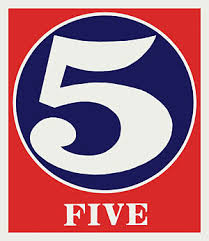There are about 12,238 surveys and data points that you can unearth when researching the rapidly evolving, and probably growing, 'gig economy', i.e. work that is performed by independent contractors, self-employed types, and those that for better or worse, (worse), get referred to as '1099 workers', for the IRS form on which their earnings are reported.
Rather than spit out a bunch of (sometimes contradictory) data on how and where this gig economy is heading, I wanted to share three quick and interesting developments in this area that are worth thinking about and then one more recently released set of survey data that should be a warning to HR and business leaders that are moving towards increased usage and reliance on 'gig' workers.
Item 1 - Atlassian now lets you hire freelancers right from Jira
JIRA, Atlassian’s flagship project management service, is getting a new feature today that will let you easily convert JIRA tickets into job postings on Upwork’s freelance marketplace. “The smartest people will always exist outside of your company,” Atlassian’s head of growth for JIRA and Bitbucket Sean Regan told me. For many companies — and especially small startups — it’s also hard to have all the right expertise available in-house to solve every problem. With this new integration, these companies can now click a button in JIRA and get a pre-populated form to submit to Upwork’s marketplace.
Steve here - an example (of which we will see more I am sure), of enterprise technology and management tools integrated with sourcing/hiring platforms for 'Gig' workers
Item 2 - LinkedIn enters the Gig Economy with an Upwork competitor
LinkedIn has created a freelance marketplace. Launched on Wednesday, "LinkedIn ProFinder" asks employers to submit contract jobs in categories such as design, writing, or financial services and promises to send them up to five free quotes from LinkedIn users in response. Over the last five years, the number of freelancers on LinkedIn has increased by 50%, according to the company.
Steve here - Of course it makes sense for LinkedIn to dive in more heavily into the 'Gig' work space. It's growing, and LinkedIn thinks/knows it has the way to connect gig workers with opportunity
Item 3 - This CEO says he was shut out by tons of investors in Silicon Valley for classifying his workers as W-2 employees
But Josh Bruno, the CEO of senior-care startup Hometeam, said that for him it was always clear that Hometeam's 1,000-plus caregivers needed to be on W-2s. They needed a lot of training, and Bruno wanted to give them the sense that Hometeam was investing in them for the long haul.
But unfortunately, when Bruno was trying to raise money, that wasn't what Silicon Valley VCs wanted to hear.
"I was kicked out of every office on Sand Hill Road," Bruno said, referring to the iconic street that houses many famous Silicon Valley VCs. Bruno said he even had a verbal agreement with a "flashy name" VC, who then wouldn't go through with the investment unless Bruno put his workers on 1099s.
Why? One reason, Bruno said, is because big names like Uber and Lyft were doing it. Bruno's main competitor, Honor, which was named one of Business Insider's hottest San Franciscostartups to watch in 2016, originally used 1099s. It has since switched to W-2s.
But it wasn't simply because everyone was doing it, Bruno said. The deeper reason rested in what a 1099 represented.
Bruno said that to VCs he spoke with, a 1099 meant a job that was both easy and repeatable. The worker is a part that can be swapped in, which is good because it means the business will be easier to scale, Bruno explained. And it would be easier to get the kind of growth the VCs were looking for.
Steve here - In case you wondered what the general attitude of 'people who have money and are looking to have more money' is towards labor, there you have it. 'Gog' workers are cogs, more or less the same, more or less interchangeable. This isn't a problem until.... Well, let's ask some of the Gig workers.
And as promised, here's your warning, 67 percent of Americans who have worked as independent contractors would choose not to do so in the future (infographic below courtesy of Deloitte).
A recent online poll by Deloitte of nearly 4,000 workers found that 67 percent of respondents who have worked as an independent contractor would choose not to do so again in the future. Additionally, more than 60 percent of employed workers said that their stability would suffer if they moved to independent contract work, and 42 percent worry about sacrificing good compensation and benefits.

Steve here - Lots of interesting nuggets to take away from the Deloitte data, but they all point to the same place - that many, many 'Gig' workers are not at all happy to be Gig workers, and that most organizations are doing a terrible job managing and engaging these gig workers. it's almost as if the Silicon Valley VC attitude towards labor is taking hold and becoming more common.
The danger is at the same time you as an organization make the strategic move to increase your use of Gig workers, and the tools and technologies are making it easier for you to incorporate Gig workers into your processes and workflow, that the way we value, treat, and support Gig workers seems to be getting worse. And lots of Gig workers are not happy.
Plenty to think about here as the next few years play out.
Have a great week!

 Steve
Steve

